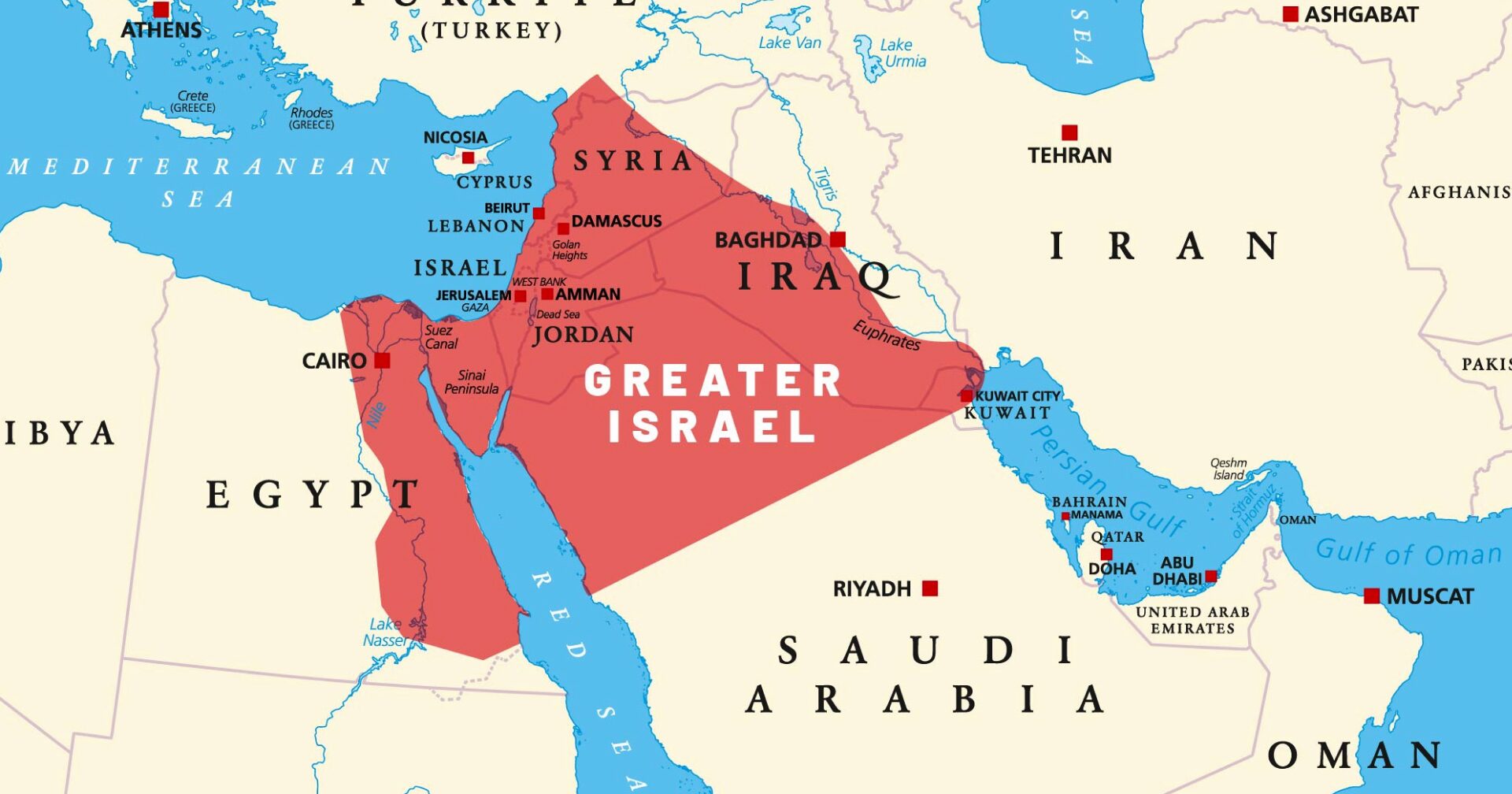Could the Conflict with Israel and Other Middle Eastern Countries Escalate?
Jamaica Live International News Desk-Aug- 13-2025
Concerns are mounting across global capitals that the simmering tensions in the Middle East could spiral into a wider regional conflict, after Israeli Prime Minister Benjamin Netanyahu reaffirmed his attachment to the controversial vision of a “Greater Israel.”

In a televised interview on Tuesday with i24 News, Netanyahu was presented with an amulet by interviewer Sharon Gal depicting “a map of the Promised Land.” The map outlined territory not only within Israel’s current borders but also encompassing occupied Palestinian lands, as well as parts of Syria, Egypt, and Jordan.
Netanyahu responded that he felt “very connected” to the vision—language that, to many in the Arab world, signals expansionist intent and challenges the sovereignty of neighbouring states.
Prime Minister Benjamin Netanyahu has said he is on a “historic and spiritual mission” and feels “very” attached to the vision of so-called “Greater Israel.”
While the amulet itself did not appear on screen, the term “Greater Israel” is widely understood to refer to a far-reaching expansionist vision.

Historical and Political Context
The concept of “Greater Israel” has deep roots in certain nationalist and religious circles and has gained prominence in the Israeli government. The “Greater Israel” vision has drawn fears of annexation and territorial ambitions beyond current internationally recognised borders.
Neighbouring countries, particularly Egypt and Jordan—both of which have peace treaties with Israel—view such statements as undermining decades of fragile diplomacy. Syria and Lebanon, already in a state of hostility with Israel, interpret the rhetoric as a direct provocation.

A Volatile Security Landscape
Netanyahu’s comments come at a time when the Israeli military is intensifying operations in Gaza, and exchanges of fire with Hezbollah in southern Lebanon are becoming more frequent. These developments raise the possibility of a multi-front confrontation.
Analysts warn that in such an environment, inflammatory political statements can act as accelerants, pushing regional actors toward harsher military postures. Iran, which backs both Hamas and Hezbollah, remains a looming factor—its involvement in any escalated conflict would draw in other Middle Eastern states and possibly global powers.

International Reaction and Risks
Global reactions have been swift, with diplomats from Europe, the United Nations, and the Arab League warning that such rhetoric risks destabilising an already fragile region. Aid agencies have also expressed concern that escalation would exacerbate the humanitarian crisis in Gaza and along Israel’s northern border.
The primary risks of escalation include:
- Cross-border clashes escalating into full-scale war with Hezbollah in Lebanon.
- Retaliatory strikes from Iran in response to perceived Israeli provocations.
- Destabilisation of peace treaties with Egypt and Jordan if territorial claims appear to threaten sovereignty.
International outrage is intensifying as protests against the Gaza conflict continue to sweep across the globe. One social media user wrote: “Imagine living in a world where you could be arrested, suspended, or beaten for saying ‘don’t kill children’—because it might hurt the feelings of the killers.” The post referred to events in Paris, France, where video footage shows demonstrators being violently beaten by police. Similar crackdowns have been reported in Germany and the Netherlands, while Britain has adopted an even tougher approach—labeling certain protest groups as terrorist organisations.
Why Jamaicans Should Care
While the conflict is geographically distant, its ripple effects are global. An expanded war in the Middle East would likely disrupt oil supply routes, pushing up fuel prices and increasing the cost of goods in Jamaica. The Jamaican government also maintains diplomatic interests and has citizens living and working across the region, whose safety could be at risk in the event of wider hostilities.
The Middle East stands at a dangerous crossroads. Netanyahu’s embrace of the “Greater Israel” vision has revived old fears and heightened tensions with Israel’s neighbours. Whether these tensions erupt into a broader conflict depends on the choices made in the coming weeks—not just in Jerusalem, but in Cairo, Amman, Beirut, Damascus, and Tehran.
For Jamaica and the wider Caribbean, this is a moment to watch closely—not only for humanitarian and diplomatic reasons, but for the economic and security implications that could reach our shores.
